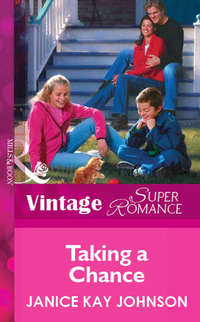
Полная версия
Between Love and Duty

There’s a right way, then there’s the wrong way
Nobody knows that better than police captain Duncan MacLachlan. He has served and protected for years without bending to a middle ground he doesn’t believe in. And he’s not about to change. Certainly not for stubborn—and sexy—court advocate Jane Brooks. Her shades-of-gray view of the world clashes with his black-and-white one.
Then a mission to save an at-risk teen has Jane’s life on the line. Now she and Duncan must join forces despite their differences—and the flaring attraction that’s too hot to ignore. It’s Duncan’s toughest challenge yet. Because keeping Jane safe is one thing…and keeping her out of his arms is another.
“So tell me, Captain MacLachlan, what do you do for fun?”
Fun? Duncan had to think for a minute about Jane’s question. How often did he do anything that he could call fun?
“I play basketball.” Suddenly he was smiling. “I gave Judge Smithson a bloody nose with my elbow in one of our last games of the season.”
Jane chuckled. “And you had the nerve to appear in his courtroom.”
“He repaid me with an elbow to the gut. I dropped to my knees retching.”
Her full-bodied laugh rang out.
“Like that image, do you?”
“I’m embarrassed to admit how much I do.”
He was still smiling, something he hadn’t expected to do in her company. She was irritating, all right, but also…not as unlikable as he’d thought. Smart, edgy, amusing. Still not a woman he’d consider romantically. But sexually?
Maybe.
Dear Reader,
Stories grow from surprising moments. This trilogy came from an image that lurked in my mind. I live in a small town where people know how to celebrate the Fourth of July. Our parade is a big deal, and bagpipers play while marching in kilts. One particular piper has lingered in my memory. He was tall, striking, auburn-headed and solemn, a hero if I’ve ever seen one. One day that not-so-important memory sent up shoots. I imagined three brothers walking shoulder to shoulder, all playing the bagpipes that are their heritage.
Alas, heroes have minds of their own. Duncan MacLachlan, the oldest son, declined to play the bagpipe. He was taught by his father, whom he bitterly resents, and he chooses to reject everything that came from a man he despises. And, darn him, Conall, the youngest son, feels the same. Only Niall, the hero of the upcoming book From Father to Son, embraces his Scottish heritage.
Despite his defiance, I fell for Duncan. He’s a man to whom duty is all. He sacrificed his dreams when his brothers needed him. Romantic love is a foreign concept to him, and not one he intends to embrace. But aren’t responsibility and duty rooted in a deep sense of caring? And what is caring but a kind of love? Oh, yes, it turns out that Duncan is quite capable of loving...once he meets a woman strong and fierce enough to defy him, command his respect and gain his trust. He might have been able to ignore her, if only she didn’t need his protection. Naturally, Duncan feels it’s his duty to provide it. And love has everything to do with it.
These brothers, damaged by a painful childhood, are some of my favorite heroes.
Enjoy!
Janice Kay Johnson
Between Love
and Duty
Janice Kay Johnson

ABOUT THE AUTHOR
The author of more than sixty books for children and adults, Janice Kay Johnson writes Harlequin Superromance novels about love and family—about the way generations connect and the power our earliest experiences have on us throughout life. Her 2007 novel Snowbound won a RITA® Award from Romance Writers of America for Best Contemporary Series Romance. A former librarian, Janice raised two daughters in a small rural town north of Seattle, Washington. She loves to read and is an active volunteer and board member for Purrfect Pals, a no-kill cat shelter.
Janice enjoys hearing from readers. Please contact her c/o Harlequin Books, 225 Duncan Mill Road, Don Mills, ON M3B 3K9, Canada.
Books by Janice Kay Johnson
HARLEQUIN SUPERROMANCE
1332—OPEN SECRET*
1351—LOST CAUSE*
1383—KIDS BY CHRISTMAS*
1405—FIRST COMES BABY
1454—SNOWBOUND
1489—THE MAN BEHIND THE COP
1558—SOMEONE LIKE HER
1602—A MOTHER’S SECRET
1620—MATCH MADE IN COURT
1644—CHARLOTTE’S HOMECOMING**
1650—THROUGH THE SHERIFF’S EYES**
1674—THE BABY AGENDA
1692—BONE DEEP
1710—FINDING HER DAD
1736—ALL THAT REMAINS
HARLEQUIN ANTHOLOGY
A MOTHER’S LOVE
“Daughter of the Bride”
SIGNATURE SELECT SAGA
DEAD WRONG
*Lost…But Not Forgotten
**The Russell Twins
Other titles by this author available in ebook format
Contents
PROLOGUE
CHAPTER ONE
CHAPTER TWO
CHAPTER THREE
CHAPTER FOUR
CHAPTER FIVE
CHAPTER SIX
CHAPTER SEVEN
CHAPTER EIGHT
CHAPTER NINE
CHAPTER TEN
CHAPTER ELEVEN
CHAPTER TWELVE
CHAPTER THIRTEEN
CHAPTER FOURTEEN
CHAPTER FIFTEEN
CHAPTER SIXTEEN
PROLOGUE
EIGHTEEN-YEAR-OLD DUNCAN MacLachlan saw from half a block away that his mother’s car was in the driveway. So she was home. He didn’t know if that was good or not. Man, he should have stopped to grab a burger somewhere. Mom wasn’t likely to cook dinner tonight.
He parked at the curb, killed the engine and winced at the jerk followed by a barely muted bang. Mr. Kowalski next door glared every time he saw him now. Duncan always waved hello, even while thinking, Live with it, dude. Every penny he was making this summer was going in the bank to pay for tuition. There was no way he could afford to replace the muffler. He’d sell the car before he left for college at the end of August, anyway. Kowalski would have peace and quiet then.
Duncan loped across the yard, but found himself hesitating on the porch. He wasn’t even sure why the reluctance. Who cared how many years Dad had gotten this time? Not him. They could throw away the key as far as Duncan was concerned.
Except, he guessed Mom did care.
Maybe. He frowned, his hand on the knob. She’d been strange lately. Worried about Dad, maybe, but…somehow Duncan didn’t think so.
He gave his head a quick, hard shake. What? He was cowering at the thought of another chapter in the MacLachlan family soap opera? The last chapter, as far as he was concerned.
Five more weeks, and he was gone.
The sweet thought of freedom loosened his shoulders and he opened the door. “Hey, Mom,” he called.
There was no answer. Surprised, he walked through to the kitchen and was more surprised yet to see that she was there, sitting at the table not doing anything. The radio was off; she didn’t even have a magazine open in front of her. And no, she wasn’t cooking dinner.
Dirty dishes in the sink showed that Conall had been around. So did the bread left on the counter, open so it could dry out. Peanut butter that should have gone back in the fridge. An empty milk carton lay on its side. Beside it was a crushed beer can. Duncan felt a rush of anger at the sight of that. Con was twelve years old. Twelve.
Was that what had Mom staring straight ahead, this weirdly unfocused look in her eyes?
Duncan didn’t move past the doorway. “Mom?”
Slowly, almost as if painfully, she lifted her gaze and blinked; once, twice.
“Um…are you all right?” he asked.
Her face contorted, then smoothed again. He saw her swallow. “Your father was sentenced to ten years.”
Duncan nodded. Dad had gotten five last time, got out early—the judge definitely was going to come down on him. He dealt drugs for a living; he deserved whatever they threw at him.
“Do you know where your brothers are?” she asked, in a seeming non sequitur.
Unease crawled up his spine with the quick flick, flick of a snake in the grass. Why was she so out of it? They both knew where Niall was. Duncan’s fifteen-year-old brother was in juvie for possession. Only for a joint—it could be worse. With Niall, it usually was worse. This time, when they called, Mom had said, “He can rot there,” and hung up the phone.
Around a constriction in his throat, Duncan said, “Conall was still asleep when I left this morning.”
Only twelve, Conall had been out late last night. Duncan had heard him come in sometime after one. Mom wasn’t even trying to control him anymore, which Duncan didn’t understand.
“I left a note asking, if he didn’t do anything else today, he could at least leave the kitchen clean.” Mom didn’t even look toward the mess.
Duncan said awkwardly, “I can clean up.”
Her eyes were focused now on his face. So intensely focused, he couldn’t look away.
“I’m afraid—” her voice cracked “—you’re going to have to.”
“Do you, uh, want to lie down or something?”
She shook her head. “I’m done, Duncan. I can’t take any more. Your father promised…”
He couldn’t imagine why she would ever believe anything Dad promised. And she must have known for at least a year that he was moving drugs again. Duncan hadn’t even heard them arguing. It was like she’d given up.
“I can’t do anything with your brothers. You’re an adult now. You don’t need me anymore.”
What was she talking about?
“I’m already packed,” she said. “I wanted to stay until you got home. To…explain.”
Explain what? He only stared.
“I’m leaving,” his mother said flatly. “Your aunt Patty is in Sacramento. She told me I could stay with her until I got on my feet. I don’t want anyone but you to know where I’ve gone.”
“You’re…leaving?” His voice cracked this time, as if he was a little kid and it was beginning to change.
“Yes. You should, too. Maybe Jed’s parents would put you up until you go in August.”
This was like an out-of-body experience. He watched himself standing in the doorway, gaping. Heard himself say, “But…Conall.”
She shrugged. “He’s not your responsibility.”
“He’s my brother.”
His mother had aged. Between the moment he walked in the house and now, she’d added ten more years. She only shook her head. “There’s nothing either of us can do for him, or Niall, either. Face it.” She rose to her feet; her voice hardened. “I have.”
“You’re just…taking off,” he said in disbelief.
“That’s right.” She walked toward him. He had to fall back to let her by. She paused briefly; he thought she kissed his cheek, although he wasn’t positive. “You’re a good boy, Duncan,” his mother murmured, so softly he might have imagined that, too. A moment later he heard the front door open and close.
Her car started. She backed out.
He hadn’t yet returned to his body. He was afraid to. The house was utterly quiet.
His father had been sentenced today to ten years in the Monroe Correctional Complex. His mother had driven away. Apparently she intended to keep going, all the way to California. She thought he should go upstairs, pack his things and leave, too, so that his brother Conall would come home to find no one.
There’s nothing either of us can do for him, or Niall, either.
But he’s twelve years old! A kid. Really, so was Niall.
Not your responsibility.
Then whose were they?
Duncan’s heart was thudding as though he’d sprinted the homestretch of a five-mile run. His breath came in great gasps, like an old-fashioned bellows. His hands had formed fists at his sides.
Not your responsibility.
Then whose? Whose? he raged silently.
Upstairs he had a packet from the university. He was still waiting for a dorm roommate assignment, but he’d already chosen his classes. He was this close to escaping. The freedom had shimmered in front of him since he started high school and understood what he had to do to attain it. Good grades, scholarships, and he was gone.
The promise was so beautiful, he stared at it with burning eyes, understanding now what his mother had seen as she sat there at the kitchen table. Not the here and now, but what could be.
If only he, too, agreed that his brothers weren’t his responsibility.
Duncan made an animal sound of pain and fell to his knees. He pressed his forehead against the door frame and hung on.
There was a reason college and escaping home and family had always shimmered before his vision. That’s what mirages did.
CHAPTER ONE
IT HAD BEEN A PISSER of a day, and Duncan MacLachlan’s mood was bleak. He had had to personally arrest one of his officers, a five-year veteran, for blackmailing a fifteen-year-old girl into performing an act of oral sex on him.
It didn’t get any worse than that. Rendahl had betrayed the public trust. He’d also been so stupid he had apparently forgotten that his squad car was equipped with a video camera and microphone that uploaded wirelessly. Duncan grunted. Stupidity was the least of Rendahl’s sins. Ugly reality was that he was a twenty-seven-year-old married man who’d blackmailed and terrorized an already frightened girl into fulfilling his sexual fantasy.
Duncan realized his teeth were grinding together and he made himself relax. The dentist was already threatening him with having to wear some damn plastic mouth guard at night. “Find another way to express your tension,” Dr. Foster had suggested.
Today, Duncan would really have liked to express it by planting his fist in that son of a bitch’s face. Hearing his nose crunch and seeing the blood spurt would have worked fine, if only as a temporary fix.
Instead, he’d gone by the book, because that’s what he did. He’d been his usual icy self. His only consolation was the way Rendahl and his attorney both had shrunk from him. They’d seen something in his eyes that he hadn’t otherwise let show by the slightest twitch of a muscle on his face.
To cap his perfect day, he’d held a press conference announcing the arrest while maintaining the girl’s privacy. He had had to ignore most of the shouted questions. How did you explain something like this when you couldn’t understand it yourself?
He’d come home and planted himself, cold beer in hand, in front of a Mariners game on TV. He’d gotten up for a couple of replacements, thought about dinner and settled for a sandwich. Purple and secretive, dusk finally crept through the windows. Duncan hadn’t turned on a light, inside or out. The game hadn’t worked any magic; he didn’t know the final score and didn’t care. At last he flicked the TV off with the remote and settled in his recliner, brooding.
How could such a lowlife have passed under his radar for five years? Gotten satisfactory ratings in annual reviews? Rendahl had fooled a lot of people. Duncan liked to think he knew the men and women who worked for him, even if there were seventy-four at last count. Knew their strengths, their weaknesses; what motivated them, what tempted them. Police Captain Duncan MacLachlan hadn’t gotten where he was by misjudging people.
Dusk became night, and still he sat there, disinclined to go to bed, uninterested in reading or finding out what might be on television. The darkness wasn’t complete, not with streetlamps, the Baileys’ front porch light across the street, occasional passing headlights. It suited his mood to feel as if he was part of the night, invisible. Anonymous.
The recliner was comfortable enough that Duncan began to nod off. Rousing himself enough to get to bed seemed like too much effort. If he woke up later, fine. He let himself relax into sleep.
The tinkle of shattering glass shot him into wakefulness, instantly alert and incredulous. Unbelievable. Somebody was breaking into his house. He immediately understood why. He hadn’t turned lights on and off the way he usually did. To somebody who hadn’t seen him pull into the garage at six o’clock, it would have looked as if nobody was home.
He might get a stress reliever after all, he thought with black humor.
Duncan didn’t lower the recliner; it might have creaked. Instead he reached for his weapon, which he’d earlier dropped on the side table along with his badge, and eased himself out of the chair. The fact that he’d kicked off his dress shoes was good. He could move far more silently in stockinged feet.
He used the light filtering in the front window to cross the living room without having to feel his way. The further tinkle of glass told him the intruder was brushing shards from the frame before climbing in. Or while climbing in. He knew it was the window in the utility room. Any second he’d hear…
Thud.
He’d left the wicker hamper of dirty clothes right in the middle of the small room. So his intruder didn’t have a flashlight, or hadn’t turned it on yet.
Duncan slipped down the hall and stationed himself to one side of the open doorway to the utility room. What he wanted to know was whether he had one trespasser, or more.
A dark shadow passed him. After a moment, he risked a look into the utility room. His vision was well-adjusted to the lack of light. Empty.
One, then.
He tracked the figure creeping down the hall then moved with a couple of long strides. Duncan slammed into the intruder and took him to the floor, where he held him down effortlessly and pressed the barrel of his gun against his neck.
“Police,” he barked. “You’re under arrest.”
“What the…?” A string of obscenities followed in a voice that was high enough that, for a moment, Duncan believed he’d just flattened one of the rare women who did breaking and entering. The next second, he thought in disgust, Oh, hell. It’s a kid.
“Hands behind your back,” he snapped, and grabbed both wrists when the boy obliged. Scrawny wrists. He realized the body he was holding down wasn’t very big. “All right, push yourself to your knees. That’s right. We’re getting to our feet.” He helped—roughly. He nudged the kid a short ways until they reached the light switch. “Face the wall,” he ordered. “Put your hands flat on the wall.”
He turned on the light and was momentarily blinded. He didn’t like that, but his intruder cringed from the brightness, too. Duncan waited until he could adequately see what he’d caught, then growled a profanity of his own.
“How old are you?”
Cheek ground against the wall, the Hispanic boy glared at him and stayed mute.
Duncan gave him a little shake. “Tell me.”
The boy muttered something. Duncan shook him again.
“Twelve.”
Well, damn. He hadn’t caught even a small fish tonight. This was a minnow.
Book the kid? Call the parents? What if there weren’t any?
He barely stifled a groan. Decision time.
THE BUILDING, DIVIDED INTO perhaps eight or ten apartments, was predictably ramshackle. Clapboard siding needed paint. Parking for tenants was on the street or in a very small dirt lot to one side, which was also home to a rusting hulk on cinder blocks. Another car, apparently ailing, had its hood up. Three men were bent over the engine. One had pants hanging so low, Jane Brooks could see way more than she wanted to. When she parked at the curb, another of the men glanced over his shoulder, but with a conspicuous lack of real interest.
She checked the folder on the passenger seat to verify the address. Yep, this was it. Number 203 was presumably upstairs. There was only one entrance, although fire escapes clung precariously to each end of the apartment house which, to her eye, didn’t stand quite square.
She’d been in worse places.
Jane locked her car and made her brisk way in, nodding and greeting a very young, very pregnant woman who was trying to maneuver into one of the downstairs apartments a playpen that didn’t quite want to fold the way it was supposed to. Jane held the door, smiled and chatted briefly in Spanish. She was lucky she’d taken it in high school. Currently, one-third of the kids in the local school district were Hispanic, up to half in two of the elementary schools, where instruction was in Spanish in the mornings, in English in the afternoons. She didn’t quite consider herself fluent, but she was getting there, what with her volunteer work at the alternative high school and then with the Guardian ad Litem gig.
She was acting today as a court-appointed Guardian ad Litem. Her task was to interview the adults involved, or potentially to be involved, in the life of a boy named Tito Ortez. Tito’s father was soon to be released from the Monroe Correctional Complex, and the judge would have to determine whether Tito could be returned to his custody. At the moment, the boy lived with his older sister, one Lupe Salgado, whose address this was. Eventually Jane would talk to Tito’s father, of course, Tito himself and perhaps even teachers. His report card suggested he wasn’t doing well in school.
The stairwell and hall were shabby but surprisingly clean. Upstairs she rapped firmly on the door displaying an upright metal 2, a listing 0 and a 3 that hung upside down.
“Venga,” a voice called, and after only a momentary hesitation Jane opened the door to find herself in a cramped living room.
Two young, black-haired children sat in front of the television, on which a small green dragon seemed to be trying to puff dandelion seeds but was, to his frustration, setting them on fire. Both children turned to stare at Jane. The girl stuck her thumb in her mouth. An ironing board was set up in the narrow space between a stained sofa and the wall. A Formica table with four chairs and a high chair was wedged into the remaining space. The spicy smell of cooking issued from the kitchen.
Jane raised her voice enough to be heard in the kitchen. “Hola. Me llamo Jane Brooks.”
A woman appeared, wiping her hands on a dish towel and looking flustered. “Sí, sí. I forgot you were coming. Perdone.” In a flurry of Spanish too fast for Jane, she spoke to the children, then gestured Jane into the kitchen. She was cooking, she explained, and couldn’t leave dinner unattended.
She did speak English, but not well; Jane made a mental note that living in a non-English-speaking household probably wasn’t helping Tito’s school performance. Jane and the boy’s sister continued to speak in Spanish.
Jane was urged to sit at a very small table with two chairs while her hostess continued to bustle around the kitchen.
“You’re Lupe?” she asked, for confirmation, and the young woman nodded.
Like the pregnant teenager downstairs, she had warm brown skin, long black hair and eyes the color of chocolate. She was pretty, but beginning to look worn. Plump around the middle, and moving as though her feet hurt.
Jane knew from the paperwork that Lupe was twenty-three. There had been other children born between Lupe, the oldest, and Tito, the youngest, but they were either on their own and unable to help with Tito or were in Mexico with their mother. Tito, Lupe explained, had stayed with his father because Mama thought as a boy he needed a man.
She shrugged expressively. “Then, one year after Mama returns to Mexico, Papa is arrested. So stupid! I called Mama, but she is living with an uncle and it is very crowded. So she begged me to keep Tito. Which I’ve done.”
As if this household wasn’t crowded. “You have children of your own,” Jane said, with what she thought was some restraint.
“Sí, three. The little one is napping.” She stirred the black bean concoction on the stove. “My husband, he left me.” She sounded defeated.“I work at La Fiesta and a neighbor watches the children. I can’t depend on Tito. Maybe if he was a girl.” She shrugged again.








